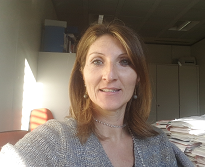10 December, 2015
ETNO Think Digital Blog Post: A modern and balanced copyright framework fit for the Digital Age
"Online content can reach people in a way that could never have been imagined before, new business models are emerging every day. It is time to look at the new reality and create a modern and balanced copyright framework" #ThinkDigital
While film-lovers may have been perfectly happy to trudge down to the blockbuster shop on a cold winter evening to rent a DVD ten years ago, times have changed. Citizens are moving towards a fully-connected lifestyle. A lifestyle in which everything is available everywhere – literally – at the swipe of a finger. This is what TeliasSonera refers to as ‘Anywhereisation’ – “with today’s media services, you can carry a library of books or 15 million songs, in your pocket.”
This rapid and dramatic change, brought around by the Internet era, has opened up a mine-field of new dynamics that businesses and regulators need to understand and adapt to.
While having immediate online access to creative content such as films, books, songs or video games is a brilliant feat for consumers, we need to strike the right balance between allowing for these new and innovative business models to flourish, while protecting the rights of those who create the content, making sure they are properly remunerated for their work.
Until this delicate balance has been found, copyright will continue to be a highly contentious issue in today´s digital world.
The key to relieving such tensions, is a clear and simple copyright framework, adapted to today’s digital environment. ETNO has continuously called for a re-think of the rules in this area and was therefore encouraged to see that modernising copyright law was singled out as one of the priorities of Jean-Claude Juncker’s presidency of the European Commission during his announcement of the work programme.
Following up on that promise, yesterday the European Commission took the first step towards modernising existing copyright rules with an action plan for modernising EU copyright rules and a more concrete proposal on cross-border portability of content. ETNO welcomes all initiatives aimed at widening the availability of legally acquired online content under fair and reasonable conditions and stands ready to provide input and expert advice for the next steps towards achieving a digital single market.
If we really want Europe to be one single market both online and offline, cross-border availability of content is essential. Have you ever tried to access your favourite online programme outside your country? The fragmentation of the EU market, which is made up of different national consumer laws, different standards for content delivery, different territorial copyright restrictions, prices, windowing systems and more, is a significant obstacle to the oh-so-wished-for single market.
The European Commission should focus on harmonising rules throughout Europe and dealing with what Vice-President Ansip referred to as “the mess of exceptions to the rules that apply across the EU’s 28 countries”. In particular, the private copy levy regime, the most prominent example of fragmentation in the EU copyright framework. Private copying is one of the allowed exceptions to copyright law in which governments may seek elsewhere the compensation to right holders for revenue loss if their works are copied - by imposing a levy on electronic hardware like blank DVDs, recording equipment, MP3 players or photocopiers for example. The exception is not provided for by all EU Member States however and even the conditions for its application vary. ETNO believes that there should be a full harmonisation of the applicable regime in those countries where the private copy levy is applied, especially in relation to the criteria for the determination of the tariffs, the fair compensation principle and the double compensation.
We fully support the European Commission in their endeavour to ensure wider access to content in the EU to provide more choice to people and also to allow artists/right holders to share their creative content to a wider audience.
The Internet and new technologies have brought with them new issues in terms of copyright law and its enforcement, but there are not only challenges and difficulties along the way - the Internet also offers many opportunities. Online content can reach people in a way that could never have been imagined before, new business models are emerging every day. It is time to look at the new reality and create a modern and balanced copyright framework that fosters investment and the provision of innovative services while maintaining appropriate protection mechanisms to ensure that copyright owners are properly remunerated for their work. We also believe that a multi-stakeholder collaborative effort would help in reaching this balance.
Useful links
- ETNO response to the Public Consultation on the review of the EU copyright rules – March 2014
- European Commission communication on copyright reform - December 2015
- European Commission proposal on portability of content - December 2015
By Caterina Bortolini and Marta Capelo for ETNO #ThinkDigital, 10.12.2015
***
Biographies
 Caterina Bortolini, Legal/Regulatory advisor, Telecom Italia and Digital Single Market Working Group Chair, ETNO
Caterina Bortolini, Legal/Regulatory advisor, Telecom Italia and Digital Single Market Working Group Chair, ETNO
Caterina Bortolini has been working within the Telecom Italia Group for 15 years. After some years in Brussels, during which she specialised in antitrust and telecommunications law, she is now based in the Telecom Italia headquarters in Rome and deals with European and international public policy affairs. Within ETNO, she covers the chairmanship of the Digital Single Market WG, dealing with matters related to the online distribution of content and intermediaries liability. She also participates to the activities of other EU and international associations and organisations.
 Marta Capelo Gaspar, Head of Public Policy, ETNO
Marta Capelo Gaspar, Head of Public Policy, ETNO
Prior to joining ETNO, Marta worked as the Transport and Communications Counsellor for the Portuguese Permanent Representation to the European Union. Before that, she was a Member of the Cabinet of the Portuguese Secretary of State for Infrastructure, Transport and Communications.
Marta has extensive experience in telecoms regulation as well as intellectual property, data protection and e-Commerce services. In the early years of her career, she worked as a lawyer for leading Portuguese and international law firms in the technology, media & telecoms practice. Her academic background includes a degree in law from the Catholic University of Lisbon and European Legal Studies at the College of Europe in Bruges.


